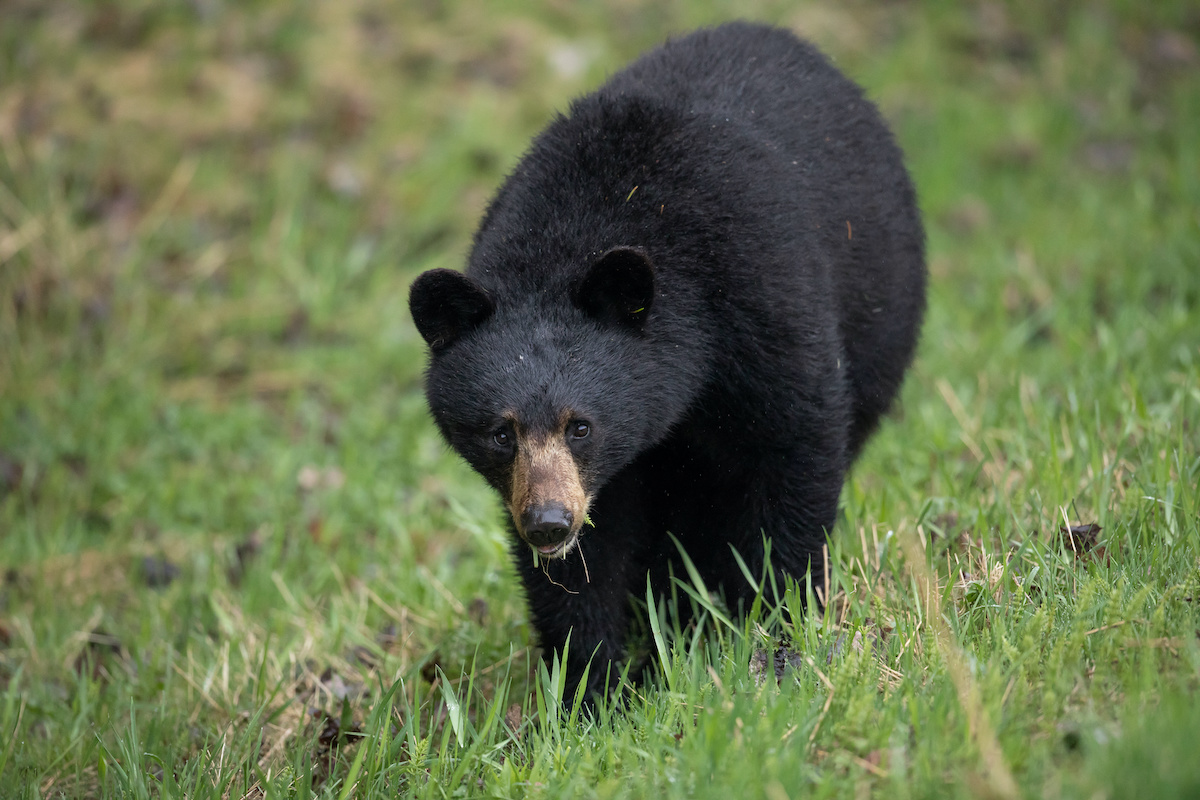
The Appalachia Georgia Friends of the Bears would like to remind the public that fall has arrived! The leaves have started turning at higher altitudes, children and young adults alike are returning to school, and Southeastern Conference football heralds the arrival of fall. For those not familiar with the biological clock of the American Black Bear, late summer, and early fall heralds a time known as Hyperphagia or excessive eating. They must eat a lot of food to store fat for the winter. Bears all over North America are entering Hyperphagia now.
Black Bears are opportunistic feeders. A 250 lbs. male Black Bear must eat 3,000 calories a day to maintain weight, which is approximately 1.5 lbs. of acorns a day. On top of all these calories needed for daily living, they must consume 20,000 calories/day or about 10 lbs. of acorns during Hyperphagia to gain the needed 3-5 lbs./day needed for hibernation.
Garbage kills bears. Two-thirds of all human-bear conflict is bears accessing human garbage. In addition to the dangers of being around humans, they ingest packaging that damages their teeth chewing metal cans which will cause intestinal damage and result in a painful death. Human food causes tooth decay increasing the likelihood of abscesses that will kill them. Natural food does not.
It is more important now to secure attractants to reduce the possibility of having human-bear conflicts. This comes in the form of garbage, birdseed, hummingbird feeders, pet food, livestock food, greasy grills, smokers, and fish cookers, and other wildlife foods accessed by Black Bears. These attractants teach them to approach homes and humans for more food.
Today, there is a general agreement that most human-bear conflicts are the result of human behavior. There is no such thing as “nuisance,” or “problem” bears. Bad human behavior begets bad bear behavior.
The Appalachia Georgia Friends of the Bears is a 501(c)(3) non-profit whose mission is to reduce Human-Bear conflict through proactive educational outreach programs, increasing public awareness about coexisting with black bears, the use of humane bear deterrents, and advocacy. Visit them at https://agfriendsofthebears.com or their partners at BearWise.org.






